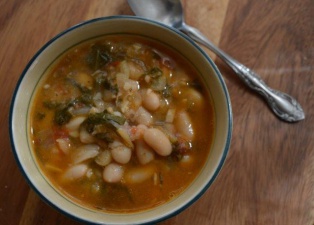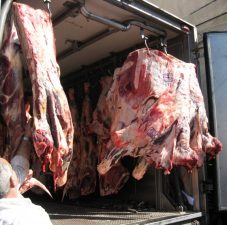In spite of some climate differences, most Middle Eastern countries raise the same crops. Don’t think that it means little choice, though. The huge variety of local fresh fruit and vegetables here, and their bright flavors, astound Westerners who have forgotten how a tomato or a green bean should taste. Real superfoods (see our article about superfoods here.)
It has to do with shorter distances for produce to travel, of course, but some of it has to do with the pickiness of local consumers. When you’re used to cheap, abundant, and fresh, only that will do. August is a peak month for soft fruits and tender vegetables, like eggplant (our recipe for eggplant-based baba ganoush here).
Fruit at its peak are figs, melons, plums, peaches and nectarines, passiflora and table grapes. Pears are just starting to come in. Apples are in the markets but not prime yet. Pomegranates have just started appearing in the shuks. Bananas, which don’t do well in the Middle Eastern heat, are beginning to revive and some handsome ones, still green, are now in the markets.
There are some lemons and limes, but not many and expensive. Dragonfruit is in Israeli markets, as are tiny and expensive pineapples. Mangoes are abundant and beautiful right now. In Turkey, you may find medlars, a fruit that must be allowed to decay before it becomes sweet enough to eat.
Vegetables worth buying now are herbs (parsley, fresh coriander, dill, tarragon, rocket, spring onions, sorrel), spinach and all the varieties of lettuce. One exception is celery, which is feeling the heat and produces thin, rather dry stalks now. Basil is around but not very good in August heat; examine it carefully for insect infestation.
Swiss chard is a good choice. Capsicums – the peppers, both sweet and hot – are in excellent shape and prices are low. Same for tomatoes. August is tomato month the world over, it seems. Buy now for drying, cooking into sauce, slow-roasting, or pickling. Onions are big and firm, with crisp, thin peels. Summer squashes in all their varieties are good buys now. Kohlrabi is available although not as cheap as in winter.
Potatoes are fine now, but not other root vegetables. Carrots, parsley root, and sweet potatoes are available but not prime, and their prices are high. Eggplant is plump and firm, from the knobbly baladi variety to the long, smooth Chinese ones to the baby eggplants for pickling. Try our creamy eggplant soup. Okra is in full season (see our recipe for Lebanese okrah in olive oil), as are green beans, cowpeas and yard-long beans. Cabbages are in season, but wait for cooler weather to buy broccoli and cauliflower. They’re available, but not very good. Fresh corn is in the markets too. Israel’s local champignon and portobello mushrooms aren’t at their best, but there are still plenty of them. Cucumbers are excellent right now, and a good choice for pickling.
Tips:
- In the north of Israel and in Arab countries, look for Melokhia, a relative of the edible mallow plant and an important ingredient in traditional stews. We have a recipe for melokhia soup here.
- Arab villagers still cultivate heirloom varieties of tomatoes, beans, and other vegetables seldom seen in the big markets. Look for big, squat, green-striped tomatoes. They’re juicy and sweet/tart.
- Limes are rare and their season very short – if you love limes and are willing to pay, buy now and freeze the juice.
- Don’t forget summer’s most abundant wild vegetable – purslane.
More mouthwatering things to do with Middle Eastern produce from Green Prophet:
- Tafline’s excellent guide to sustainable Gulf fish
- Grilled Vegetables With a Middle Eastern Accent
- Crunchy Chickpeas for Healthy Snacking
Photo of fresh figs by Miriam Kresh.




